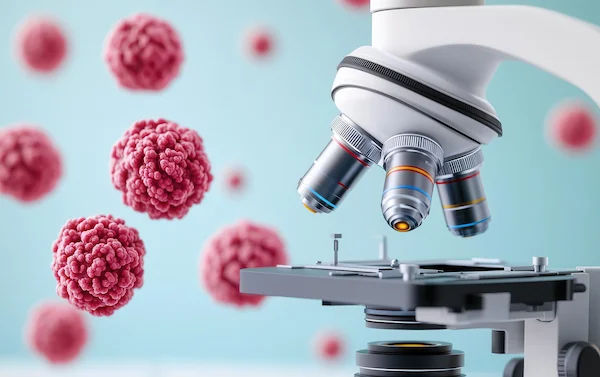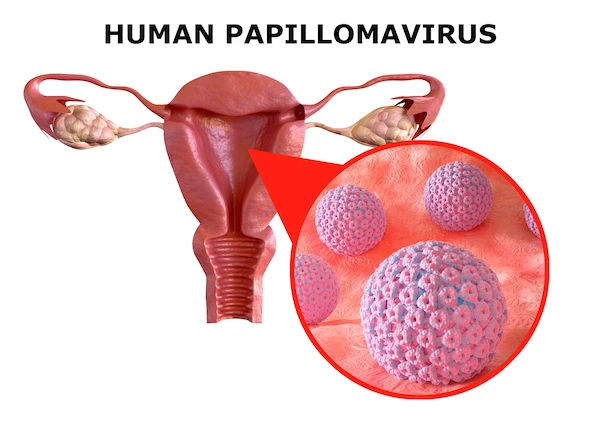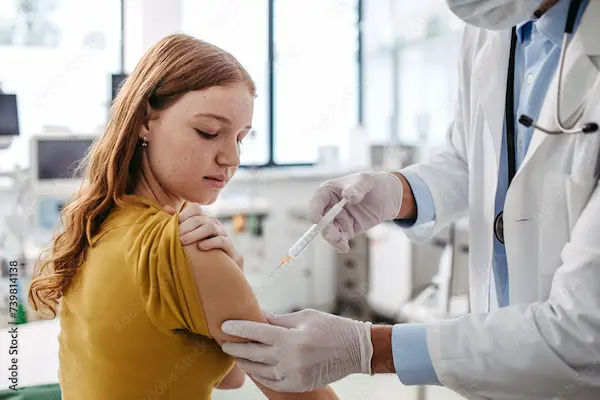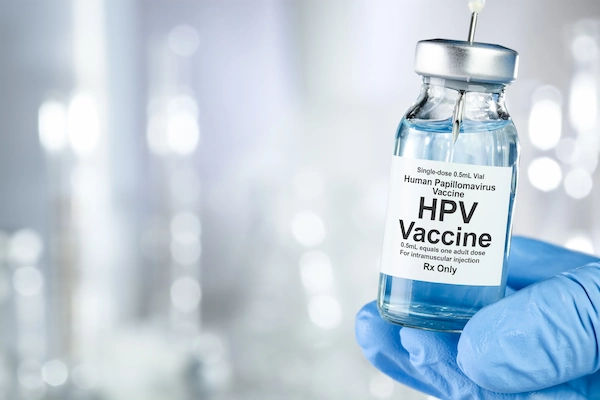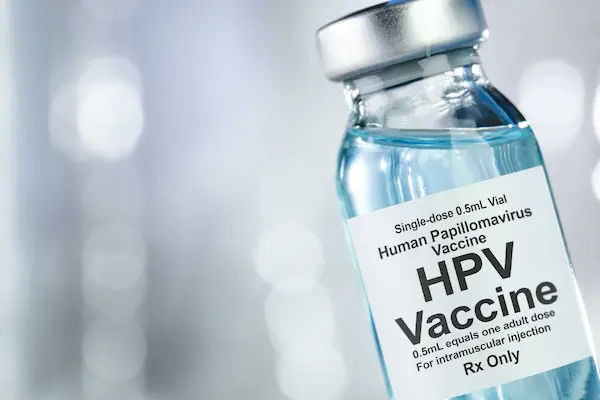HPV: Symptoms, Causes, and Treatment Information
Learn about Human Papillomavirus (HPV), its symptoms, causes, and treatment options. Understand risks, prevention, and care for better sexual and reproductive health.

Written by Dr. Mohammed Kamran
Reviewed by Dr. Rohinipriyanka Pondugula MBBS
Last updated on 13th Jan, 2026

Introduction
Human Papillomavirus (HPV) is one of the most common sexually transmitted infections (STIs) worldwide. While most HPV infections go away on their own, some can lead to serious health issues, including genital warts and certain cancers. If you or someone you know is concerned about HPV, this article will help you understand the symptoms, causes, and treatment options in simple terms.
What is HPV?
HPV is a group of more than 200 related viruses, some of which are spread through sexual contact. While many types of HPV are harmless, others can cause health problems, including:
- Genital warts
- Cervical cancer
- Other cancers (such as throat, anal, penile, and vaginal cancers)
Most sexually active people will get HPV at some point in their lives, but their immune system usually clears the infection within two years. However, persistent infections can lead to complications.
Consult a Dermatologist for the best advice
Symptoms of HPV
Many people with HPV don’t experience any symptoms, which is why regular check-ups are important. When symptoms do appear, they depend on the type of HPV:
1. Low-Risk HPV (Causes Warts)
- Genital warts – Small, flesh-coloured, or gray growths in the genital area.
- Common warts – Rough, raised bumps on hands and fingers.
- Plantar warts – Hard, grainy growths on the feet.
- Flat warts – Slightly raised, smooth lesions on the face or legs.
2. High-Risk HPV (Can Lead to Cancer)
High-risk HPV often shows no symptoms until it causes serious health problems like cancer. That’s why screening tests
(like Pap smears for cervical cancer) are crucial.
Causes and Risk Factors
HPV spreads through:
- Skin-to-skin contact, especially during vaginal, anal, or oral sex.
- Sharing sex toys without proper cleaning.
- Mother to baby during childbirth (rare).
Who is at Higher Risk?
Certain factors can increase the chances of infection. Those at greater risk include:
- People with multiple sexual partners.
- Those with a weakened immune system (due to HIV, medications, or other conditions).
- Individuals who start sexual activity at a young age.
- Smokers (tobacco use increases cancer risk from HPV).
How HPV Affects Your Health
Most HPV infections clear up naturally, but some can lead to:
- Genital warts – These are not cancerous but can be uncomfortable or embarrassing.
- Cervical cancer – Nearly all cervical cancers are caused by HPV.
- Other cancers – HPV can also cause cancers of the throat, anus, penis, vagina, and vulva.
Diagnosis and Screening
Since HPV often has no symptoms, regular screenings are essential:
- Pap test (Pap smear) – Checks for abnormal cervical cells.
- HPV test – Detects high-risk HPV strains in women.
- Visual examination – For genital warts.
If you’re due for a screening, you can book a test through Apollo 24|7 for a convenient and confidential check-up.
Treatment Options
There’s no cure for HPV itself, but treatments are available for the problems it causes:
1. Genital Warts Treatment
- Topical creams (prescribed by a doctor).
- Cryotherapy (freezing the warts).
- Laser or surgical removal for larger warts.
2. Treatment for HPV-Related Cancers
If HPV leads to cancer, treatment may include:
- Surgery
- Radiation therapy
- Chemotherapy
Early detection through regular screenings improves treatment success.
Prevention: How to Protect Yourself
Simple precautions can lower your chances of infection. Here are some tips to protect yourself from HPV:
1. Get Vaccinated
The HPV vaccine is highly effective in preventing infections from the most dangerous strains. It’s recommended for:
- Children (ages 11-12) – Two doses.
- Teens and young adults (up to age 26) – Catch-up vaccination.
- Adults (27-45) – Consult your doctor.
2. Practice Safe Sex
- Use condoms (though they don’t fully protect against HPV).
- Limit sexual partners.
3. Regular Health Check-ups
- Women should get Pap smears as recommended.
- Men at high risk (e.g., those with HIV) should discuss screening with their doctor.
4. Boost Your Immune System
A healthy immune system helps fight HPV. Try:
- Eating a balanced diet (fruits, vegetables, lean proteins).
- Avoiding smoking and excessive alcohol.
- Getting enough sleep and exercise.
When to See a Doctor
Consult a healthcare provider if you:
- Notice genital warts or unusual growths.
- Experience abnormal bleeding (especially after sex).
- Have a persistent sore throat (possible sign of throat cancer).
If you’re unsure, you can schedule a consultation with a specialist on Apollo 24|7 for expert advice.
Final Thoughts
HPV is common, but with awareness, vaccination, and regular check-ups, you can reduce your risk of complications. If you have concerns, don’t hesitate to reach out to a healthcare provider; early action makes a big difference.
Consult a Dermatologist for the best advice
Consult a Dermatologist for the best advice

Dr. Sonal Jain
Dermatologist
9 Years • MBBS, MD Dermatology, Venerology & Leprosy
Kolkata
MCR SUPER SPECIALITY POLY CLINIC & PATHOLOGY, Kolkata
(25+ Patients)

Dr. Sonal Jain
Dermatologist
9 Years • MBBS, MD (Skin & VD), DNB (DVL), Fellowship in Dermato Surgery
East Midnapore
VIVEKANANDA SEBA SADAN, East Midnapore

Dr. Kaushiki Hajra
Dermatologist
5 Years • MBBS, MD Dermatology, Venerology & Leprosy
Kolkata
MCR SUPER SPECIALITY POLY CLINIC & PATHOLOGY, Kolkata
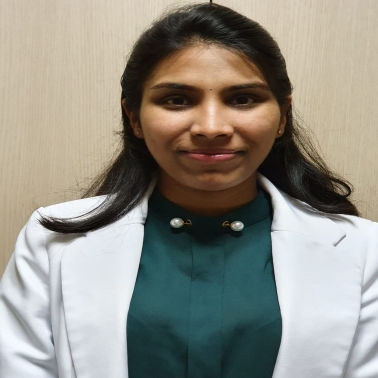
Dr. Sree Lalitha V
Dermatologist
9 Years • MBBS, DDVL , FRGUHS , Fellowship in Cosmetology. Fellowship in Dermatosugery - national skin centre ,Singapore. University medal holder in postgraduation and national scholarship in IADVL dermacon 2017
Bengaluru
Apollo Medical Center, Marathahalli, Bengaluru

Dr. Kaushiki Hajra
Dermatologist
5 Years • MBBS,MD(D V & L)
Kolkata
VDC Clinic, Kolkata
(75+ Patients)
Consult a Dermatologist for the best advice

Dr. Sonal Jain
Dermatologist
9 Years • MBBS, MD Dermatology, Venerology & Leprosy
Kolkata
MCR SUPER SPECIALITY POLY CLINIC & PATHOLOGY, Kolkata
(25+ Patients)

Dr. Sonal Jain
Dermatologist
9 Years • MBBS, MD (Skin & VD), DNB (DVL), Fellowship in Dermato Surgery
East Midnapore
VIVEKANANDA SEBA SADAN, East Midnapore

Dr. Kaushiki Hajra
Dermatologist
5 Years • MBBS, MD Dermatology, Venerology & Leprosy
Kolkata
MCR SUPER SPECIALITY POLY CLINIC & PATHOLOGY, Kolkata

Dr. Sree Lalitha V
Dermatologist
9 Years • MBBS, DDVL , FRGUHS , Fellowship in Cosmetology. Fellowship in Dermatosugery - national skin centre ,Singapore. University medal holder in postgraduation and national scholarship in IADVL dermacon 2017
Bengaluru
Apollo Medical Center, Marathahalli, Bengaluru

Dr. Kaushiki Hajra
Dermatologist
5 Years • MBBS,MD(D V & L)
Kolkata
VDC Clinic, Kolkata
(75+ Patients)
